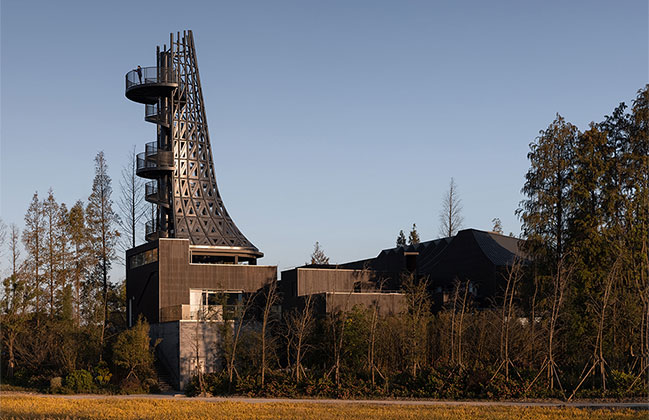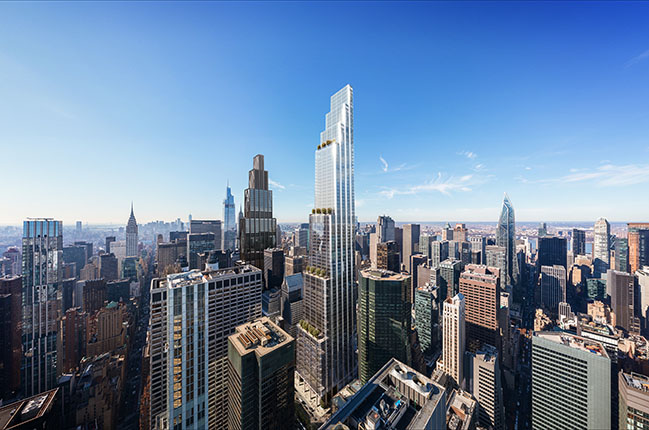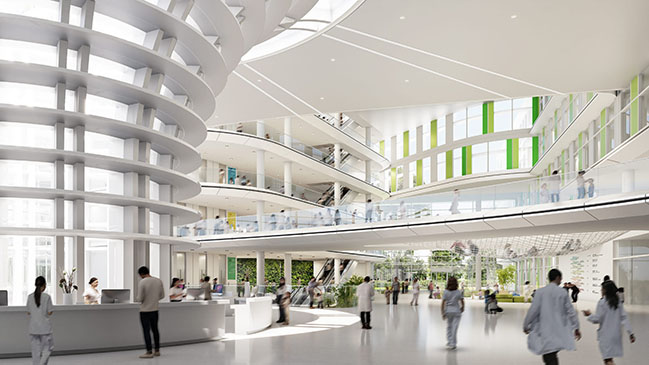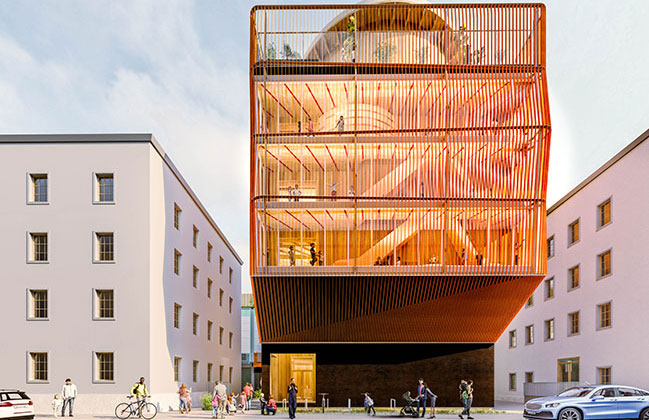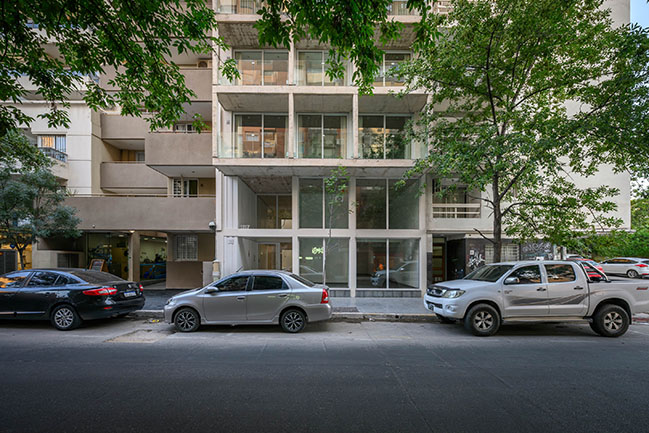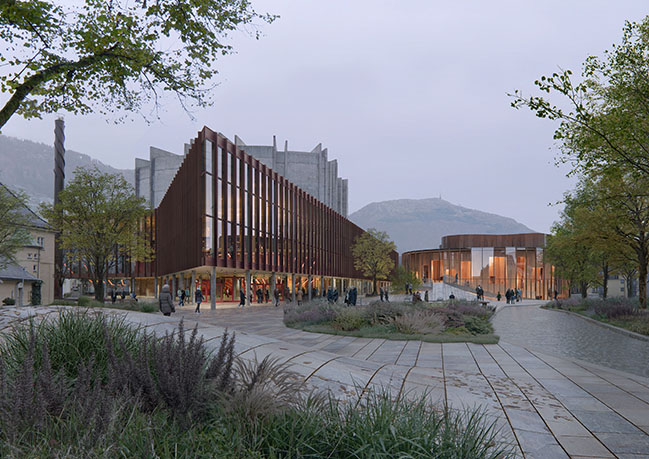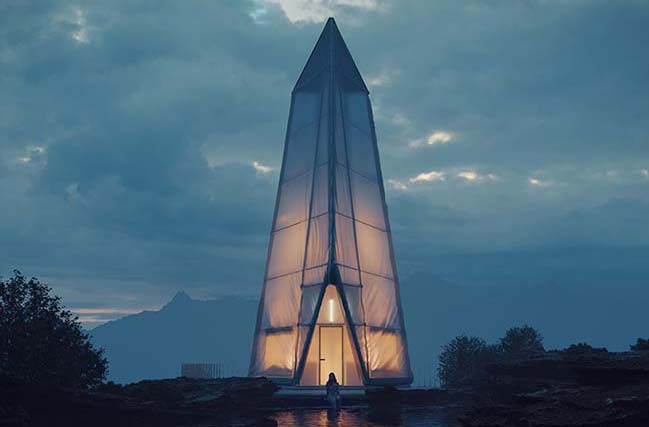05 / 08
2024
Following the collapse of the Francis Scott Key Bridge in Baltimore, Maryland, in March 2024, international construction group WeBuild, together with design office CRA-Carlo Ratti Associati and French consulting engineer and designer Michel Virlogeux, have unveiled the first proposal for a replacement bridge...
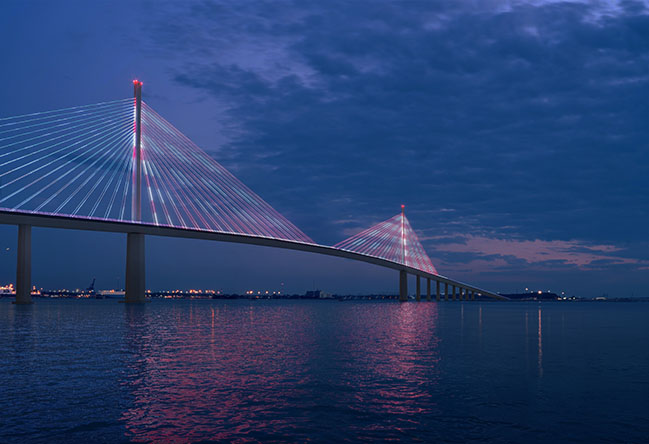
> The World's Largest Urban Solar Farm by CRA-Carlo Ratti Associati, Italo Rota and Richard Burdett
> Floating Above the Floods by CRA-Carlo Ratti Associati
From the architect: Following the collapse of the Francis Scott Key Bridge in Baltimore, Maryland, in March 2024, international construction group WeBuild, together with design office CRA-Carlo Ratti Associati and French consulting engineer and designer Michel Virlogeux, have unveiled the first proposal for a replacement bridge.
The design, which follows a cable-stayed approach that would redefine the entrance to the historic Baltimore Harbor and restore a lasting symbol of the city, improves several functional characteristics of the old bridge, including features that will enhance safety and long-term adaptability. By enlarging the bridge’s main span from 1200 ft to 2230 ft (700 m), the primary support pillars will be situated in very shallow water (a depth of approximately 23 ft), well away from the navigation channel used by large vessels. This approach aims to ensure that accidents such as the one that occurred last March, causing the former bridge to collapse, will not happen again.
Furthermore, a larger roadway, with a new lane added in each direction, will accommodate increased vehicle capacity, addressing the high traffic levels across the bridge. The design also increases clearance from 185 ft to 230 ft (70 m), in accordance with the shipping industry’s latest standards and enabling the Port of Baltimore to remain a major international harbor in the years to come. The project follows Professor Carlo Ratti’s work at the MIT Senseable City Lab, whose project “Good Vibrations” investigated innovative ways to monitor the structural safety of bridges using cellphone data. Drawing on this research, the proposed smart features of the project allow for safe traffic management and predictive maintenance techniques.
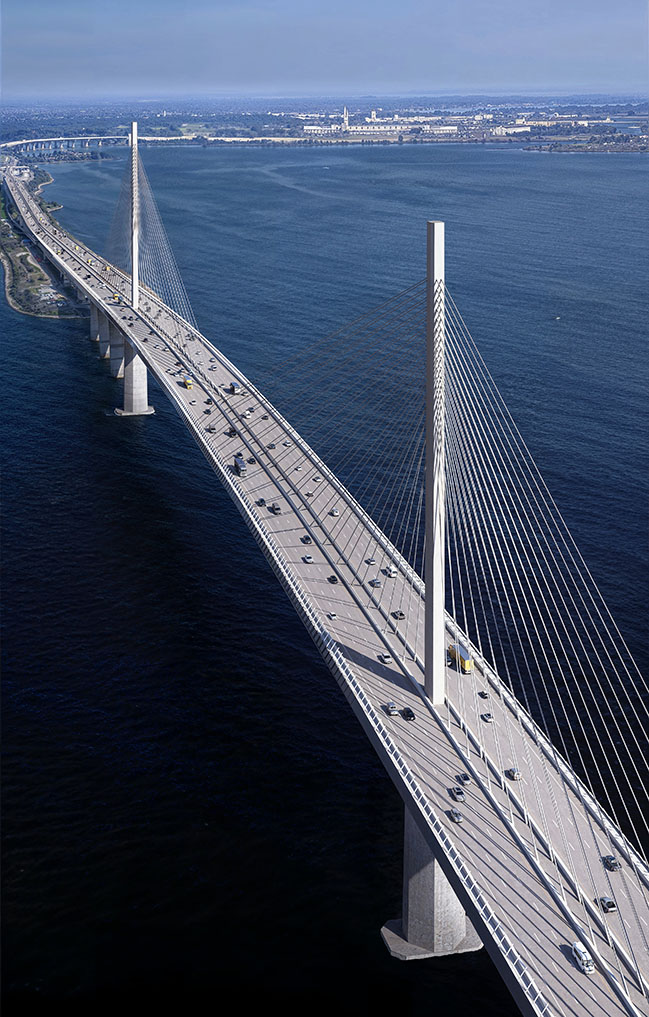
The project is designed in collaboration with renowned French consulting engineer and designer Michel Virlogeux, who designed several of the world’s most significant cable-stayed bridges, including Lisbon’s Ponto Vasco da Gama and the tallest bridge on Earth, the Millau Viaduct in the Occitania region of France. The Baltimore design has been developed for the international construction group Webuild, whose Italian branch was responsible for the reconstruction, carried out in record time, of the Ponte Morandi in Genoa, Italy, which collapsed in August 2018 following severe weather.
In terms of sustainability, Baltimore’s cable-stayed design is one of the most material-efficient ways to build at the proposed span, minimizing the project’s embodied carbon. Moreover, it avoids the need to construct artificial islands to protect the pillars, which would considerably disturb the ecosystem of the Patapsco River, which is home to several native migratory species of fish. The design also aims to minimize disturbance to the “accidental bird sanctuary” on the nearby artificial island of Fort Carroll. Reflecting a commitment to renewable energy solutions, the design optimizes energy efficiency through the installation of photovoltaic panels across the whole span.
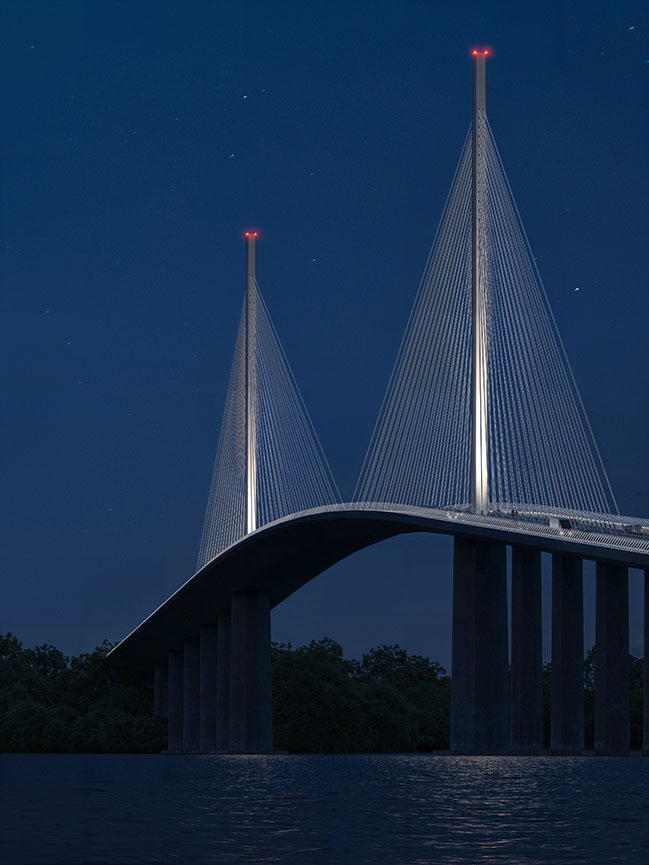
"We at Webuild and our US subsidiary Lane are ready to make ourselves available, to quickly restore this strategic bridge for local mobility," said Webuild CEO Pietro Salini in a letter sent to the US Secretary of State for Transportation, the Governor of Maryland, and the Director of the Maryland Port Administration. "We will take part in the Maryland Transportation Authority (MDTA)’s Virtual Industry Forum for the reconstruction of the bridge, and we are ready to help in any way we can at this stage in the spirit of pro bono service. The design concept of the bridge that we have been working on incessantly during this last month will represent a key contribution towards the design and reconstruction or new construction of the bridge”.
"Opting for a cable-stayed solution enables the piles to be positioned at a safe distance, well away from the navigation channel used by large vessels and hence preventing the risk of a tragedy such as the one of March 26 happening again. This approach also provides a light-weight solution to reconnect two sides of Baltimore, both socially and economically - what American infrastructure should be striving to do in the 21st century," commented Carlo Ratti, professor at the Massachusetts Institute of Technology and founding partner of CRA-Carlo Ratti Associati.
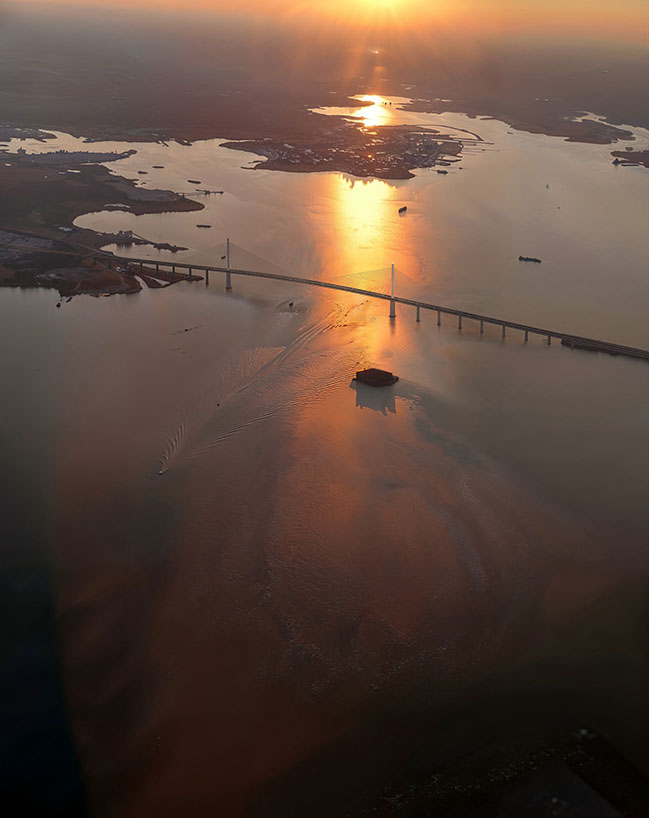
The new bridge will once again be a shining symbol of the city of Baltimore, and of the United States as a whole, marking the entrance to one of the most significant shipping ports on the East Coast.
This proposal is one of many projects that CRA has developed as part of its commitment to innovation and energy efficiency. Notable initiatives within this line include the Hot Heart Helsinki, a decarbonized heating system, and the ANAS Smart Road, a sensory infrastructure for enhanced road mobility.
Project by: CRA-Carlo Ratti Associati with Michel Virlogeux for Webuild
CRA Team: Carlo Ratti, Luca Bussolino, Claudia Dorman Alonso, Giulia Tolu, Andrea Cavaggion, Gary Di Silvio
Images: Brick Visual
Baltimore Bridge by CRA-Carlo Ratti Associati + Michel Virlogeux
05 / 08 / 2024 CRA-Carlo Ratti Associati, together with structural engineer Michel Virlogeux and international construction group Webuild, are collaborating to develop a proposal for the reconstruction of Baltimore’s Francis Scott Key Bridge, which collapsed in March 2024...
You might also like:
Recommended post: Northern Wisps by Bartosz Domiczek
